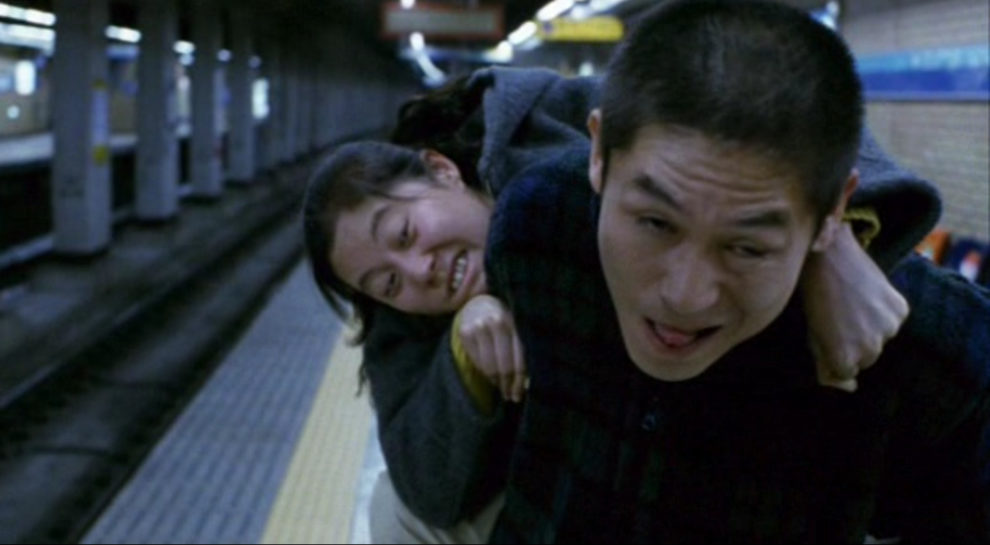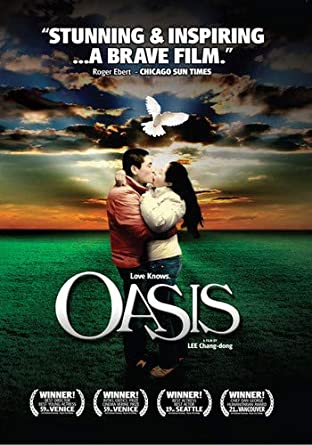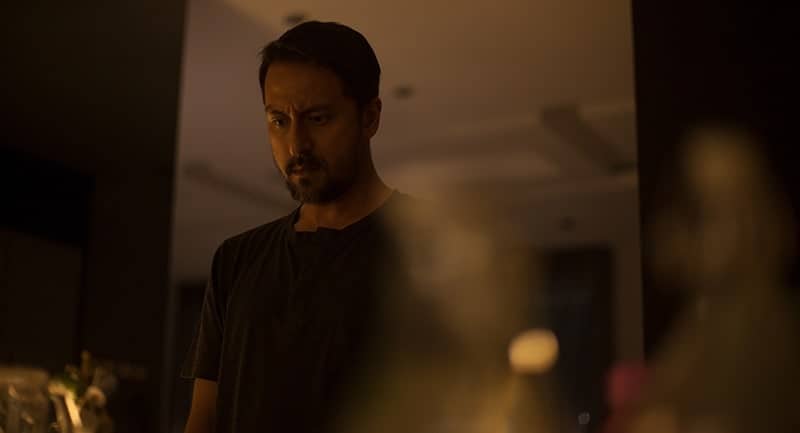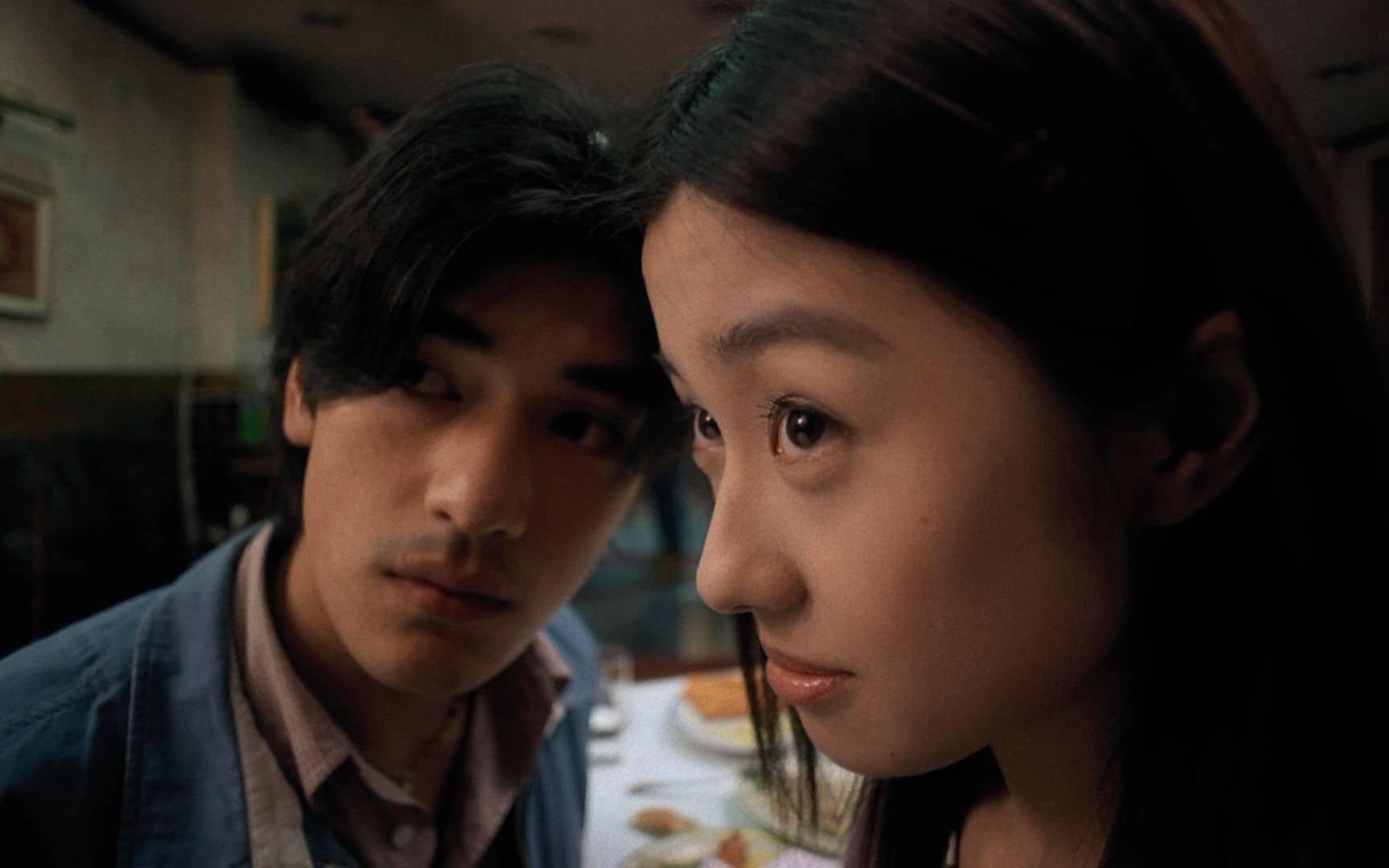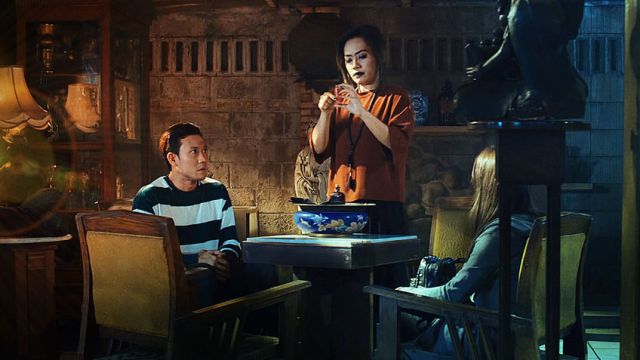There is far more to the plot of Lee Chang-dong's “Oasis” than initially meets the eye. The opening hour of the movie appears to be a rather bland and generic take on a melodrama with an unlikely match, between an ex-con Hong Jong-du (Sol Kyung-du) and Han Gong-du (Moon So-ri), who suffers from cerebral palsy. Fortunately, the romantic plot is later nuanced by a more layered focus on social issues and tensions within the families of both of the main characters.
Buy This Title
We meet Jong-du a mere couple of hours after his release from a prison. He did time for killing a man in a hit-and-run, but shows lack of remorse for the deed (as well as an attempted rape charge, another sin from the past). His comeback isn't welcome by the family. A sister-in-law admits to him bluntly: “with you out of the way I felt good about life”. With no money in his pocket, lack of understanding for social etiquette and little desire for work, the protagonist does not meet the requirements of a self-sufficient, independent and active young male in a dynamic South Korean society. It is unclear whether he was conditioned to be a misfit, or rather, he is one out of his own volition. Is Jong-du really a constant troublemaker, or rather the usual suspect and a scapegoat exploited by other family members? Lee's film explores these questions and juxtaposes the ex-con's arc with that of his love interest, Gong-gu.

She happens to be the daughter of the man Jong-du killed in the hit-and-run incident. What draws them together into this unlikely, and for some other characters even disturbing, pairing is the similar position within the society. Gong-gu is an outcast and a rather problematic addition to her brother's family. Because of her status as a person with a movement disability, she requires constant care and attention. Gong-gu's busy brother passes this duty to his neighbours for a mere 20,000 wons a month.
The strongest point of “Oasis” is the way in which the film succeeds in entwining so many contrasting emotions, like that of simultaneous sympathy and loathing for the protagonist, in such a minimalist plot. It also evades being a cheap and teary narrative about two handicapped, alienated people. Rather, by focusing on the social and economic inequalities, it offers a moving critique of a neoliberal ‘you better keep up or you'll be left behind' logic that motivates the actions of other characters in the movie.
Apart from its down-to-earth focus on the grimness of the protagonist's lives, Lee Chang-dong, in a fashion typical for his oeuvre, adds elements of a more mystical (or even expressionist) aesthetic through visual effects. The subtle ways in which actual events slowly develop into fantasies of main characters contribute to a more introspective look at their relationship. The subjective, point-of-view shots also add to this strategy, whereas the long takes show moments of serenity between the two leads. Thus the cinematography (Choi Yeong-taek) is always correlated with the elated or hopeless state of mind of Gong-gu and Jong-du.
The acting from Sol Kyung-du and Moon So-ri proves to be essential in creating the unique tension between their characters. The mobile and freewheeling performance from Sol stands in stark contrast with a passive (for obvious reasons) Moon. Tasked with playing Han Gong-du, a woman not really able to make any movement or utter a fully comprehensive sentence, Moon So-ri was presented with a very limited set of acting devices, which makes the end product all the more impressive.
Han Gong-du moves with a disturbing ease from being a rape victim to a woman infatuated with her oppressor. This sequence is a disappointingly simplistic justification of the rape culture. Apart from this, Lee Chang-dong's film turns out to be one of his first great works (later followed by “Secret Sunshine” (2007), “Poetry” (2010) and “Burning” (2018)). It's a slowburn offering that immerses the viewer into the world of the two characters at its own pace. The final 30 minutes are a rewarding, moving and even heartbreaking crescendo that conclude with an oddly serene and surreal ending.


